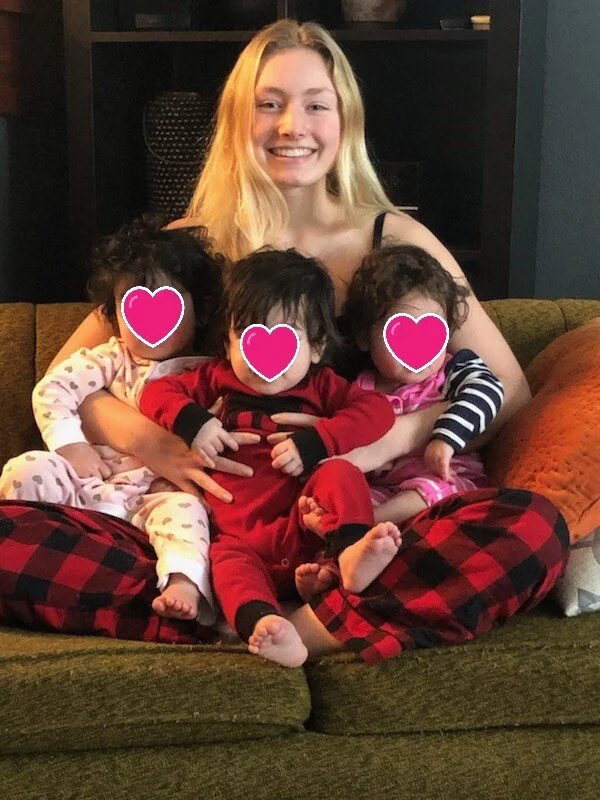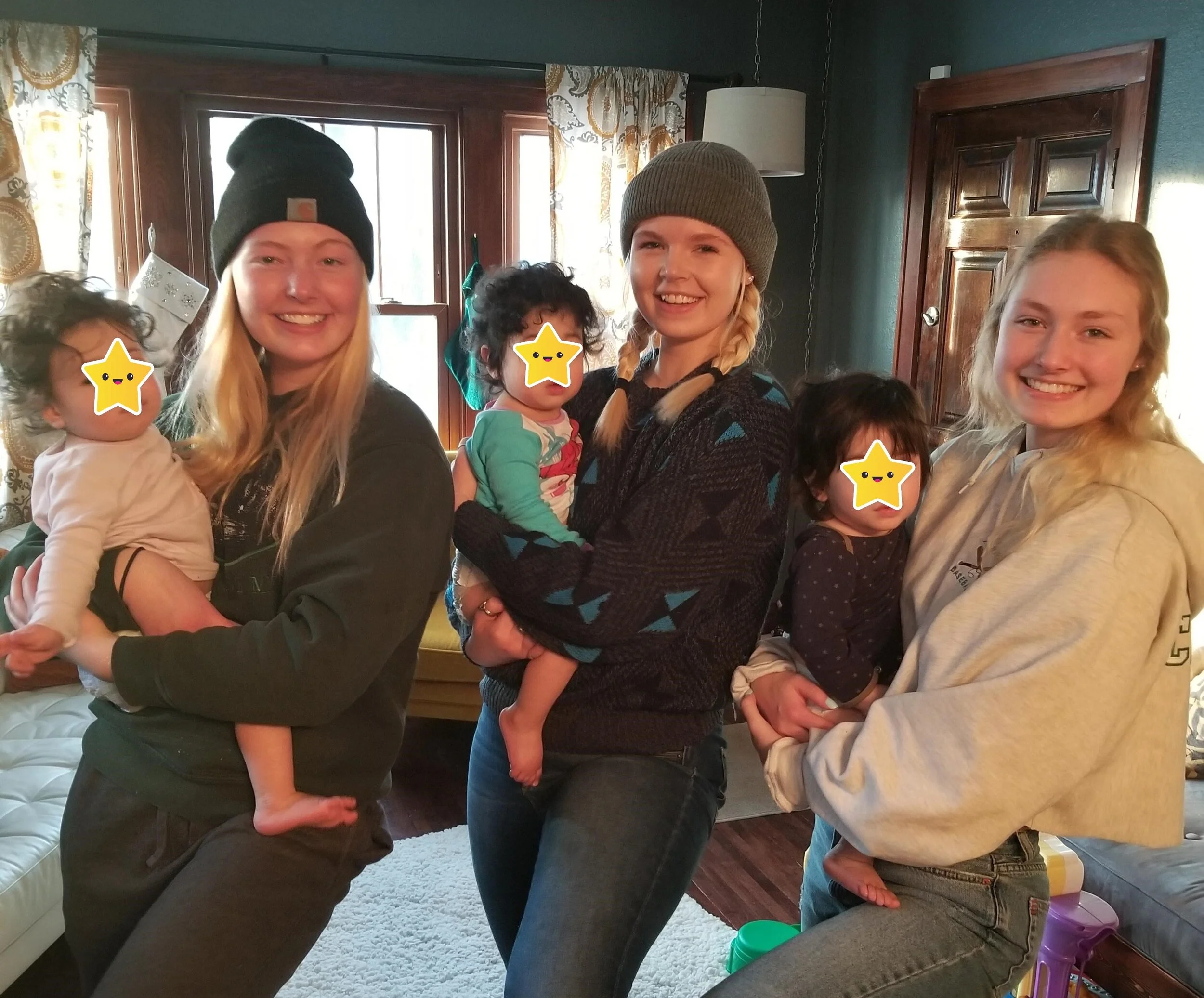The phone call went to voicemail. Again. Three times trying to reach Sheena—the mother of Latika, the one-year-old baby girl we had hosted—and still nothing.
My girls and I waited in the car behind Sheena’s high rise in the heart of downtown Minneapolis, baby Latika in her car seat. It was the last day of the hosting, and Sheena had agreed to meet us in the parking lot, so we could return Latika to her. Because of her health condition, it would’ve been too taxing for Sheena—who didn’t own a car—to walk to meet us at the Safe Families for Children office nestled deeper into the downtown.
I dialed her number one more time. Still no answer.
Latika squawked, protesting the extra time in her car seat. My girl Dicka bounced a stuffed animal in the baby’s face, tapping it to her nose every few seconds.
I checked my cell phone again. “Girls, it’s been twenty minutes. Let’s go in and find her.”
I carried the baby, and the girls toted her things to the building’s back door—the one we had seen Sheena use—right near our parked car. When a tenant emerged, we slipped in. Once inside, I scanned the place for a directory. Nothing. And the access door to the apartments was locked.
“Let’s head back out and around to the front,” I said. “We shouldn’t have come in this way.”
We exited and trudged around the building with Latika and her possessions. We passed a bus stop, swarming with people, but when a bus hissed to a halt, no one got on. Instead, all gazes zeroed in on us.
Inside the front doors of the high rise, I spotted a directory. I clicked through it, trying to locate Sheena’s name. No success.
A broad-chested security guard hustled toward us, a gun in his holster. “I saw you on the cameras trying to come in the back, and I thought, ‘They don’t belong here.’” The man’s mouth flatlined. I caught a hint of a Brooklyn accent. “Who are you looking for?”
I blew a piece of hair out of my eyes and told him Sheena’s full name, shifting the baby to my other hip. “We’re a host family for Safe Families for Children, and we’re trying to return her baby to her.”
“Well, isn’t that sweet of you.” The corners of his mouth curved up slightly, warming his expression. “She’s got a bad deal with her health, poor lady.”
“I know.” I shot a look around the lobby. Even in the broad daylight, it was dim. The walls were dingy, the atmosphere tattered. People meandered around the room, pelting us with looks. A woman cooed at Latika.
“I’ll take you up to her.” The security guard flicked a finger for us to follow him, and he mashed a button on the wall. He eyed the lit numbers above the metal doors, and when they opened, he motioned us on first, then followed—and so did two other men, so tall their heads grazed the elevator’s ceiling. One of them tilted his ear to our conversation, glancing between the guard and me as we spoke. I furrowed my brow and steered the topic to trivial things.
We exited the elevator on Sheena’s floor. The security guard sauntered to her door and knocked. When she answered, he gestured for us to enter. I thanked him, and he disappeared around the corner.
Sheena closed the door behind us and plunked down onto a bed in the living room. The heat of the room blasted us. A can of something warmed in a pot on the stove. Boxes of medical equipment lined one wall.
I frowned. “Are you feeling okay?”
She waved away my question. “Oh, yeah.”
Maybe she thought she had to be brave for us. Or for herself. But was she too sick to answer her phone?
“Did you get my messages, Sheena?”
She took the baby from my arms. “Sometimes my phone acts up.”
I briefed her on a few things about our time with her baby, and before we left, the girls and I took turns planting kisses on the crown of Latika’s head.
When we stepped back into the hallway, I spied the security guard leaning against a wall. He joined us again. On our ride back down in the elevator—free from prying eyes this time—he handed me a slip of paper with some information scrawled on it.
“I’m Vince, the supervisor. If you come here again, call first.” He tapped a finger on the paper. “This is our security line. Ask for an escort to accompany you from the parking lot. Don’t come in on your own again.” His eyes sparked intensity, even though his voice was even. “This place is full of lowlifes. Dope dealers, you name it. You don’t belong here.”
And we had just left a baby there—with her ailing mother. Did they belong there?
“I’ll do what you say,” I said, leveling my gaze at Vince. “But I’m not afraid. I live in North Minneapolis.”
He darted a look at me, frowning. “You live on the Northside? Why?”
“Because we’re supposed to be there.”
Vince raised an eyebrow, bunched his lips to one side, and nodded. When our elevator ride ended, he walked us to our car in the parking lot. I got in and put the key in the ignition. Before backing out of my spot, though, I glimpsed Vince in the rearview mirror, my thoughts switching again to a baby and her sick mama. Unfortunate circumstances had tossed them away, and poverty—its appetite never satisfied—had devoured them.
Mine wasn’t a world of unmet needs or one of subsidized housing where a security guard worked overtime to keep me alive.
My heart twisted for Sheena because she—like the rest of us—belonged in a better place.
We were all meant for the bigger life. We were all created for more.


















